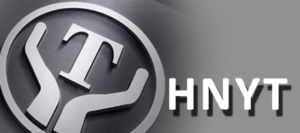What are the Common Faults in Pneumatic Sanding Devices of Trolley Wire Electric Locomotives?
What are the Common Faults in Pneumatic Sanding Devices of Trolley Wire Electric Locomotives?
The pneumatic sanding device of trolley wire electric locomotives serves the crucial function of temporarily increasing the adhesion coefficient of these electric locomotives. An upgrade from conventional sanding devices, pneumatic sanding systems offer the advantage of more uniform sand distribution.
Common faults and solutions for pneumatic sanding devices in trolley wire electric locomotives:
1. Abnormal Inlet and Exhaust Valves:
Causes: Water accumulation inside the exhaust valve leading to impact effects; spring and valve plate jamming or fracturing; excessive lubricating oil on the valve plate causing carbonization and affecting the switch.
Solution: Check for water accumulation inside the exhaust valve, ensure the integrity of the spring and valve plate, clean residual lubricating oil, and prevent carbonization.
2. Insufficient Sanding Volume:
Main Causes: Internal leakage or external leakage.
Solution: Inspect the piston for integrity and repair internal leaks; examine the pneumatic pressure line spring for signs of hardening and damage, and address external leakage issues.
3. High Lubricating Oil Temperature in the Air Pump:
Main Causes: Clogged air filters, overdue or poor-quality lubricating oil, and insufficient lubricating oil.
Solution: Clean the air filters, promptly replace or add an adequate amount of lubricating oil.
4. Jamming Malfunction:
Main Causes: Lack of lubrication or contamination, valve plate or spring fragment detachment causing cylinder jamming.
Solution: Check and replenish or replace the lubricating oil, clean the cylinders, and repair or replace damaged valve plates and springs.
These common faults in the pneumatic sanding devices of trolley wire electric locomotives necessitate prompt identification and effective solutions to ensure optimal functionality and safety during electric locomotive operations. Regular maintenance, including cleaning, inspection, and lubrication, is essential to prevent and address these issues promptly.



